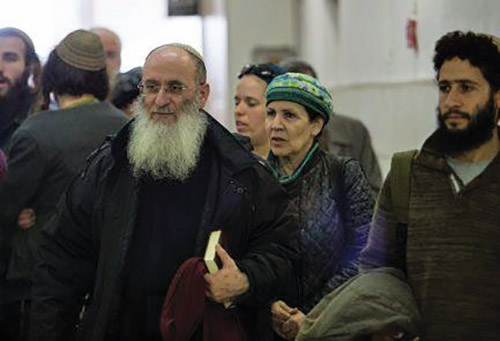
Knesset Foreign Affairs and Defense Committee passes bill to withhold the amount the PA pays to terrorists—$340M in 2017—from tax revenue Israel collects on its behalf.
The Knesset Foreign Affairs and Defense Committee passed the second and third readings of a bill that makes it possible for Israel to withhold from the taxes it collects on behalf of the Palestinian Authority an amount equivalent to what the PA pays terrorists and their families in monthly stipends.
On Sunday, hundreds of bereaved relatives of victims of terrorism made a public appeal to Prime Minister Benjamin Netanyahu and his cabinet ministers, asking that they pass the original version of the bill.
A total of 320 victims of terrorism and relatives of victims signed the letter, which stated that “it is inconceivable that the Israeli government transfer even one shekel to terrorists who murdered our loved ones, thereby rewarding despicable murderers while simultaneously encouraging terrorist attacks.”
The families sent the missive a day before the Knesset Foreign Affairs and Defense Committee adopted the final version that will deduct what it terms “terrorist salaries” from the tax revenue Israel collects for the PA.
In recent months, the MKs behind the bill, including former head of the Shin Bet Avi Dichter (Likud), have been locked in a battle with the cabinet over the proposed legislation.
Many in the defense establishment worry that withholding tax revenue could lead to the economic collapse of the Palestinian Authority. The Knesset members who authored the bill, as well as the bereaved Israeli families, rejected this concern, arguing that Israel cannot continue to ignore a situation that perpetuates terrorist murders of Jews.
An investigation conducted ahead of the committee meeting on Sunday indicated that in 2017, the PA paid families of terrorists 1.2 billion shekels ($340 million), a sum that comprises 7 percent of the PA’s annual budget.
Dichter said, “We cannot shut our eyes to this. We won’t be a conduit for the transfer of terrorist funds.”
By Ariel Kahana and Gideon Allon/Israel Hayom













